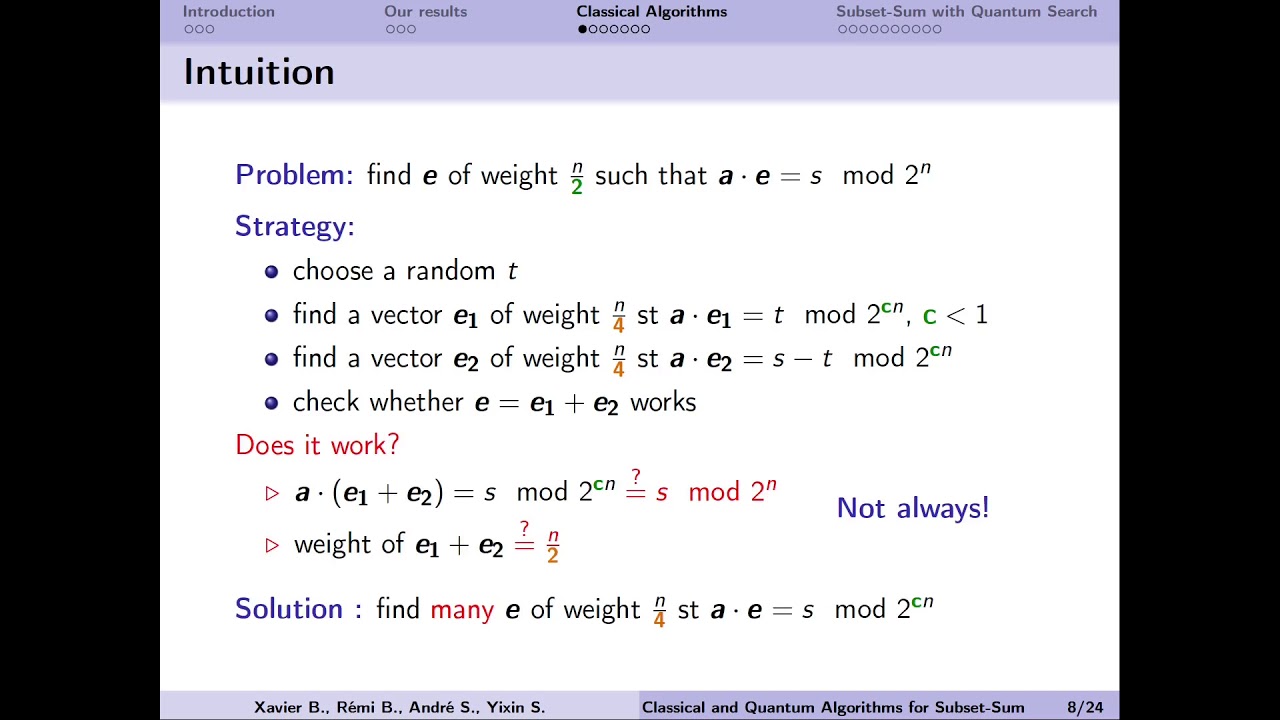Welcome to the resource topic for 2020/168
Title:
Improved Classical and Quantum Algorithms for Subset-Sum
Authors: Xavier Bonnetain, Rémi Bricout, André Schrottenloher, Yixin Shen
Abstract:We present new classical and quantum algorithms for solving random subset-sum instances. First, we improve over the Becker-Coron-Joux algorithm (EUROCRYPT 2011) from \widetilde{\mathcal{O}} \left(2^{0.291 n}\right) downto \widetilde{\mathcal{O}} \left(2^{0.283 n}\right), using more general representations with values in \{-1,0,1,2\}. Next, we improve the state of the art of quantum algorithms for this problem in several directions. By combining the Howgrave-Graham-Joux algorithm (EUROCRYPT 2010) and quantum search, we devise an algorithm with asymptotic cost \widetilde{\mathcal{O}} \left(2^{0.236 n}\right), lower than the cost of the quantum walk based on the same classical algorithm proposed by Bernstein, Jeffery, Lange and Meurer (PQCRYPTO 2013). This algorithm has the advantage of using classical memory with quantum random access, while the previously known algorithms used the quantum walk framework, and required quantum memory with quantum random access. We also propose new quantum walks for subset-sum, performing better than the previous best time complexity of \widetilde{\mathcal{O}} \left(2^{0.226 n}\right) given by Helm and May (TQC 2018). We combine our new techniques to reach a time \widetilde{\mathcal{O}} \left(2^{0.216 n}\right). This time is dependent on a heuristic on quantum walk updates, formalized by Helm and May, that is also required by the previous algorithms. We show how to partially overcome this heuristic, and we obtain an algorithm with quantum time \widetilde{\mathcal{O}} \left(2^{0.218 n}\right) requiring only the standard classical subset-sum heuristics.
ePrint: https://eprint.iacr.org/2020/168
Talk: https://www.youtube.com/watch?v=fmG8-9dXkJs
See all topics related to this paper.
Feel free to post resources that are related to this paper below.
Example resources include: implementations, explanation materials, talks, slides, links to previous discussions on other websites.
For more information, see the rules for Resource Topics .
